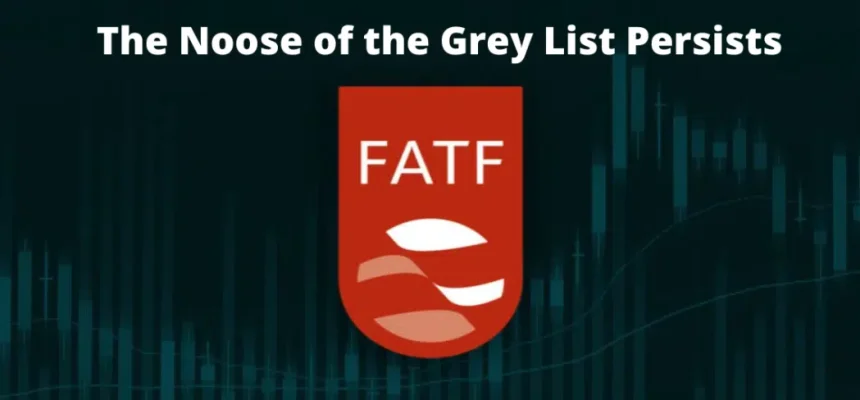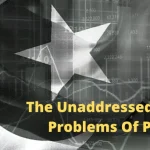Pakistan has essentially finished its two action plans, encompassing 34 issues, as part of a quest to move off the grey list, which it has been on since 2018—a decision that would put an end to the possibility of Islamabad being placed on the black list.
The Financial Action Task Force (FATF) stated that an on-site visit was required to ensure that reforms had begun and were being sustained, as well as that the necessary political commitment remained in place to sustain improvement in the future when kicking off the process to remove Pakistan from the grey list.
Minister of State for Foreign Affairs Hina Rabbani Khar, who was representing Pakistan in the plenary in Germany, was pleased with the announcement. According to her, the process of exiting the grey list begins in accordance with FATF procedures.
According to a statement released by the FATF, in its June 2022 plenary, the FATF made the initial conclusion that Pakistan has largely completed its two action plans, covering 34 items.
The global organisation decided during the meeting on the on-site inspection mission during its June 14–17 plenary meeting in Berlin, Germany.
The preliminary finding warrants an on-site examination to verify that Pakistan’s AML/CFT reforms have begun and are being continued and that the required political obligation remains in place to ensure execution and advancement in the future, according to the report.
As per FATF, they will continue to monitor the COVID situation and execute an on-site inspection as soon as feasible, without specifying when the visit will take place.
According to Pakistani officials, the FATF will send a mission to the nation next month to check that the government has fully implemented all of the FATF’s 34 requirements in February 2018 and again in June 2021. Pakistan was allocated 15 months to implement the criteria, but it took nearly four years due to the complexity of the challenges.
Also Read: Timeline of Pakistan on FATF List
The FATF’s verdict will now require pledges from all Pakistani stakeholders to prove to the FATF’s mission that the country’s anti-money laundering (AML) and counter-terrorist financing (CFT) regimes are unembellished.
According to the FATF handout, Pakistan has made a high-level political commitment to cooperate with the FATF and the Asia Pacific Group to enhance its Anti-Money Laundering (AML) and Combating Terror Financing (CFT) systems and resolve critical counter-terrorist financing gaps since June 2018.
According to the FATF, Pakistan’s ongoing governmental commitment to tackling both terror funding and money laundering has resulted in substantial progress.
Pakistan has proved that terror funding investigations and prosecutions target senior leaders and commanders of UN-designated terrorist organisations and that the number of money laundering investigations and convictions in Pakistan is increasing in keeping with the country’s risk profile.
According to the FATF, Pakistan also accomplished the majority of its 2021 action plan ahead of schedule.
Pakistani officials have stated that they will submit their progress reports to the FATF in the first week of July. According to Pakistani sources, the FATF delegation will visit Pakistan in the final week of July and attend discussions with key government ministries.
Also Read: West Centrism in The International Order
The on-site inspection team will submit its report to the FATF, and the FATF will announce its decision on whether to maintain or remove Pakistan from the grey list at the next plenary based on the report of the on-site team.
Pakistan was placed on the FATF’s grey list in February 2018, with effect from June 2018, and was given a list of 27 requirements to meet to be removed from the list.
The FATF also commended Pakistan’s “substantial progress” in completing the essential action items at its most recent plenary conference.
Pakistan has already fulfilled 26 of the 27 action items in its 2018 action plan, with one point remaining to demonstrate that terror finance investigations and prosecutions target senior leaders and commanders of UN-designated terrorist organisations.
The final action item was the most crucial of all, according to the member states who have surrounded Pakistan through the FATF platform, notably the United States and India.
Countries have all demanded through the FATF forum that Pakistan must target eight groups – al-Qaeda, Jamaat-ud-Dawa (JuD), Islamic State, Jaish-e-Mohammed (JeM), Lashkar-e-Taiba (LeT), Falah-e-Insaniyat Foundation, the Afghan Taliban, and Haqqani Network.
In June 2021, Pakistan offered another high-level commitment to resolve strategic shortcomings according to a revised action plan that was principally focused on countering money laundering, in response to additional flaws later revealed in Pakistan’s 2019 APG Mutual Evaluation Report (MER).
Also Read: Financial Turmoil & the Raging Bull
In June of last year, the FATF issued a new six-point action plan, exptoabad to international pressure methods.
Pakistan has made progress in addressing a number of the recommended actions in the 2019 APG Mutual Evaluation Report (MER) and provided a new high-level commitment in June 2021 to address these strategic deficiencies pursuant to a new action plan in response to additional deficiencies later identified in Pakistan’s 2019 APG Mutual Evaluation Report (MER).
Pakistan was asked to continue working to address its strategically important AML/CFT deficiencies by improving international cooperation by amending the Mutual Legal Assistance Law, and that it was seeking assistance from other countries in implementing UNSCR 1373 designations, clearly showing that representatives were pursuing both on-site and off-site monitoring associated with specific risks involved with designated non-financial businesses and persons (DNFBPs).
At a press conference, FATF President Marcus Pleyer stated that Pakistan will remain on the grey list for the time being. If the nation passes the onsite inspection, it will be removed from the list.
The goal of the onsite visit, he explained, is to verify that reforms have been completed and that they are durable and irreversible. Pleyer did not provide a date for the visit but said it would take place before the body’s plenary meeting in October when an “informed decision” on whether or not to delist Pakistan will be taken.






